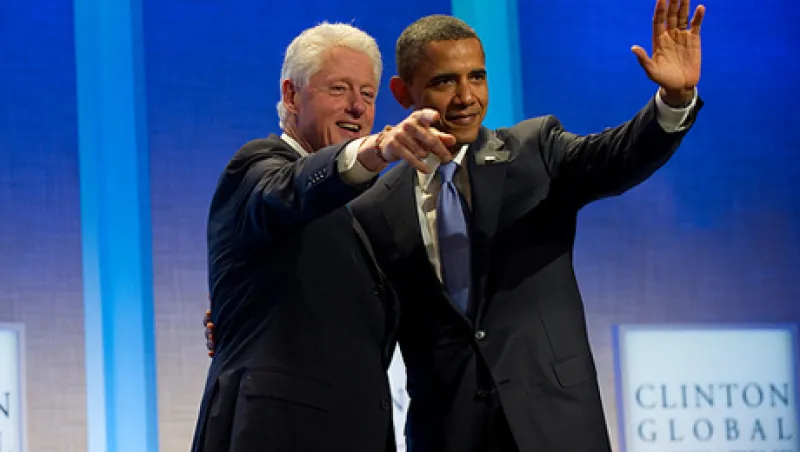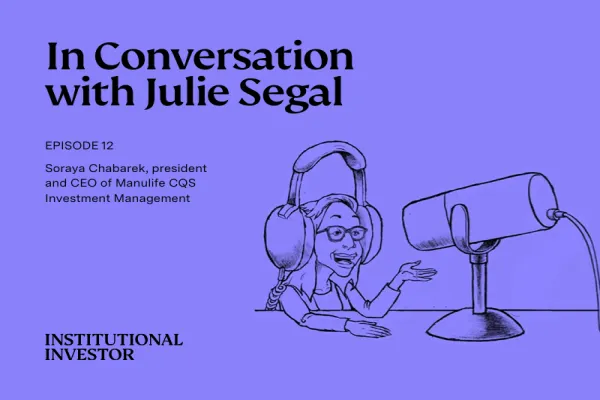Bill Clinton was supposed to devote Tuesday’s keynote address at the Clinton Global Initiative to the prospect of the planet’s population reaching the 7 billion mark later this year.
But the former president instead used the conference’s keynote platform to defend his administration’s repeal of the Glass-Steagall Act in 1999 during the height of the Internet bubble.
“I’ve been attacked by the right and by the left over this,” Clinton said to the plenary session in midtown Manhattan. “Yet people who attack me now didn’t disagree with me at the time.”
Clinton claimed that his ending the Depression-era separation of investment banking and commercial banking activities did not have any adverse effects on the economy at the time. Nor did his repeal of Glass-Steagall help spawn the global economic crisis nearly a decade later.
“Not a single bank failed because of that legislation,” Clinton said. “Lehman Brothers didn’t do any commercial banking. Bear Stearns didn’t do any commercial banking. And AIG didn’t do either commercial or investment banking.”
The former president said the fact that banks that were integrated with a combination of commercial and investment banking activities were no more likely to fail in 2008. The fundamental cause of the economic meltdown wasn’t his repeal of Glass-Steagall but rather the existence of “too much leverage” in the financial system.
“Before Dodd-Frank, the Securities & Exchange commissioner didn’t have the ability to limit the leverage taken on by the investment banks,” he said.
Clinton, whose eponymous charitable foundation stages the annual three-day conference to coincide with the opening of the United Nations General Assembly, said he regretted not placing limits on derivatives trading during his administration, something that Dodd-Frank addressed nine years later.
The president did not mention the fact that his administration’s Treasury secretary, Robert Rubin, was a former managing director of Goldman Sachs and an outspoken proponent of free and unfettered capital markets during the stock market boom of the 1990s.






